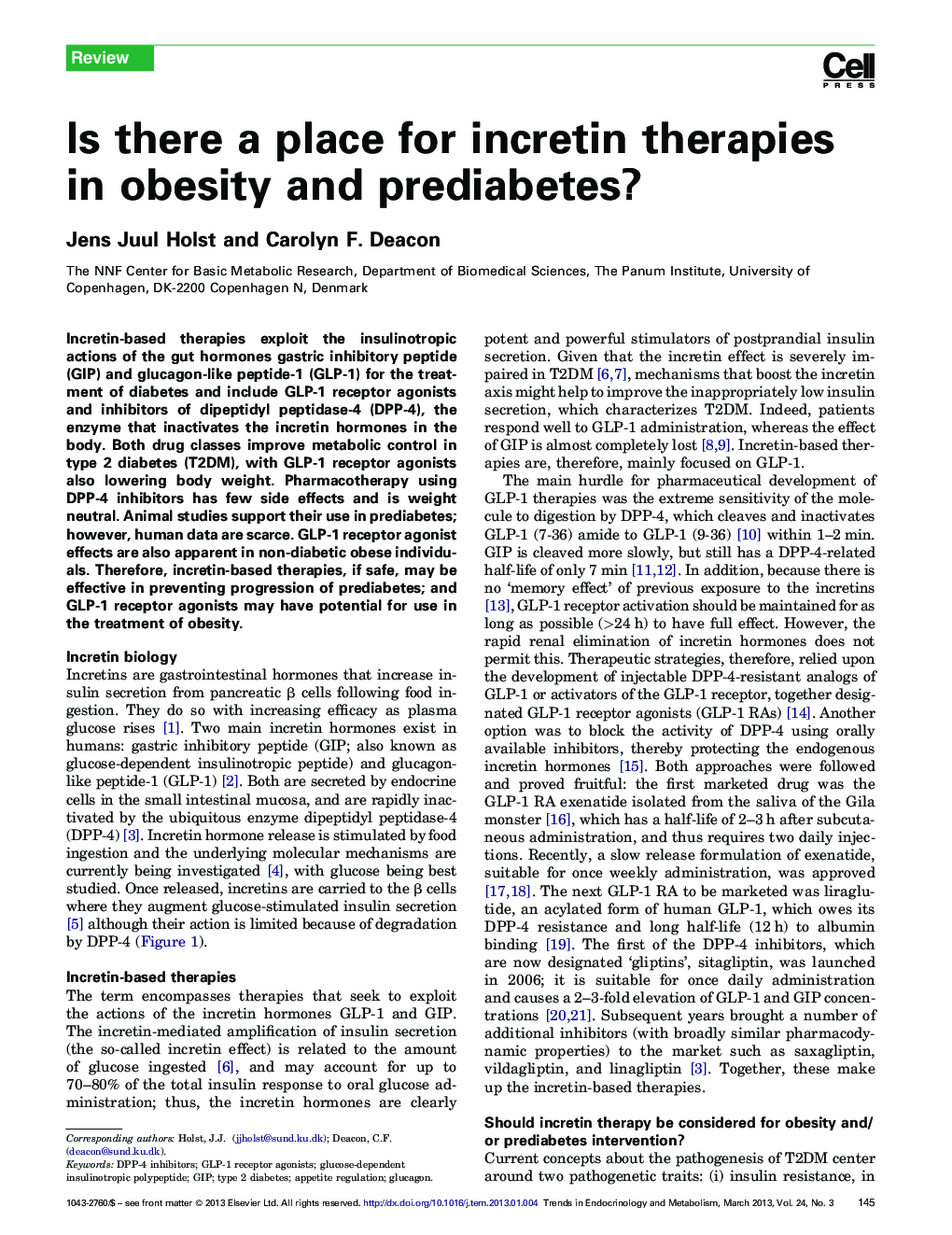| Article ID | Journal | Published Year | Pages | File Type |
|---|---|---|---|---|
| 2810323 | Trends in Endocrinology & Metabolism | 2013 | 8 Pages |
Incretin-based therapies exploit the insulinotropic actions of the gut hormones gastric inhibitory peptide (GIP) and glucagon-like peptide-1 (GLP-1) for the treatment of diabetes and include GLP-1 receptor agonists and inhibitors of dipeptidyl peptidase-4 (DPP-4), the enzyme that inactivates the incretin hormones in the body. Both drug classes improve metabolic control in type 2 diabetes (T2DM), with GLP-1 receptor agonists also lowering body weight. Pharmacotherapy using DPP-4 inhibitors has few side effects and is weight neutral. Animal studies support their use in prediabetes; however, human data are scarce. GLP-1 receptor agonist effects are also apparent in non-diabetic obese individuals. Therefore, incretin-based therapies, if safe, may be effective in preventing progression of prediabetes; and GLP-1 receptor agonists may have potential for use in the treatment of obesity.
► GLP-1 agonists may be useful for diabetes prevention. ► GLP-1 agonists promote significant weight loss. ► Currently, it is impossible to estimate risk of serious adverse effects (pancreatitis, cancer) that have been claimed to be associated with GLP-1-based therapies, because they are so rare that they are difficult to distinguish from the spontaneous occurrence rates in the (obese) background population.
